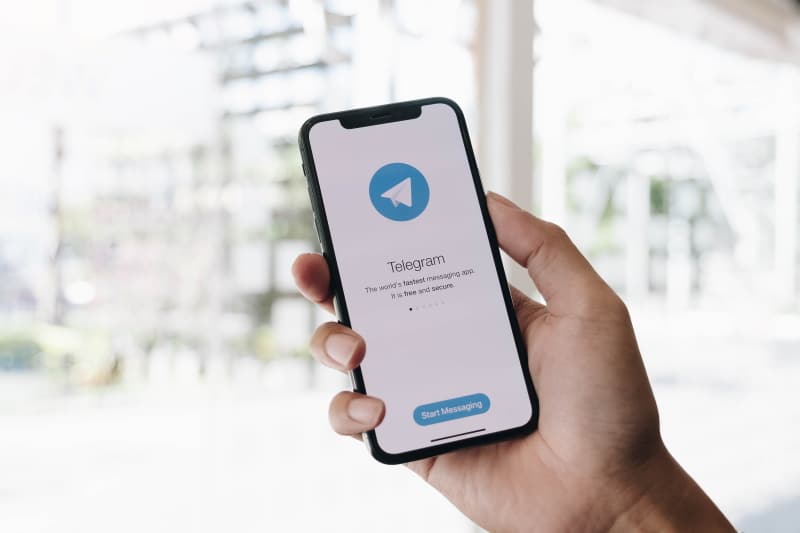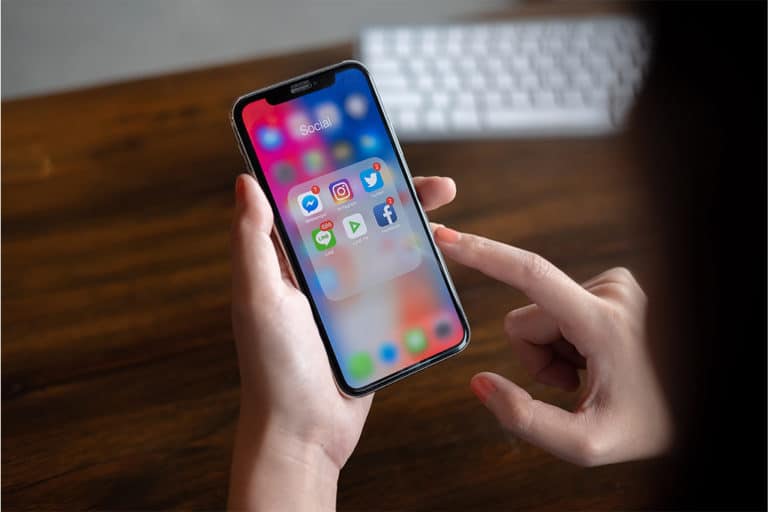Can we really trust Big-Tech?. When Facebook (now Meta) acquired WhatsApp, users were assured that their data would remain secure and that they would not be exposed to the unsavory practices for which Mark Zuckerberg and his team are notorious. Under the guise of “analytical data,” Whatsapp users have had their privacy increasingly compromised over time.
The days when you could trust this app to be completely private and not have your data collected for useful information that might be sold to advertisers are over. Here are the finest WhatsApp alternatives that really protect your privacy.
What features make a good WhatsApp alternative
There are a few key WhatsApp features that we hope to see replicated in these competitors. One is that they must feel like contemporary, tidy chat clients. Moreover, these applications must support phoning (video and voice). This is the primary reason why so many individuals utilize WhatsApp for their communication needs. Over time, the software owned by Facebook has evolved into a sort of FaceTime for Android users. It is also favored by individuals making international calls.
WhatsApp features encryption, but Facebook’s involvement makes it harder to determine just what Facebook has access to. Taking these aspects into account, this essay examines different chat clients with calling and real end-to-end encryption that are well-designed.
1. Element
Element, available for Android, or Web, is formerly known as Riot.im, leverages Matrix as its backend. Those who favor open-source from start to finish will find it to be a wonderful conversation app. Everything is open-source, including the chat client, chat protocol, and video conferencing software. This explains why Element respects your privacy so much.
People in the open-source world are often very privacy-conscious. Therefore, they frequently examine the source code to ensure that the software they rely on is secure.
Register directly from the app without a phone number (a significant benefit if you don’t have access to one). The app alternatives are very obvious, and desktop clients are also accessible. We enthusiastically recommend Element to FOSS-obsessed users.
2. Wire
Wire is available on Android and iOS and allows registration via a phone number or email address, which is a wonderful feature. The application employs the Proteus messaging protocol to encrypt text messages end-to-end.
It is important to note that both the Proteus and Wire apps have been openly audited, a distinction that few other apps can make. End-to-end encryption is offered for voice and video communications via DTLS with an SRTP handshake. This preserves the integrity of the message and prevents eavesdropping and tampering.
Wire is equipped with all the necessary functions for regular use. This includes group video calls, screen sharing, and texts that delete themselves automatically. Access to the application is free for personal use, but a fee is required for business accounts.
3. Telegram
Telegram available for Android, iOS, and Web is arguably the best WhatsApp replacement. The first setup is quite straightforward. It is quite simple to begin chatting with your contacts since you are guided through the process step-by-step.

In addition, it contains similar features like voice and video chats, a phone number-based login system, stickers, emoticons, chatbots, groups, and channels, among others. In addition to these unique capabilities, you may combine them with your smartphone’s digital assistant.
The nicest part is that you can import your WhatsApp chat quickly into Telegram. Additionally, Telegram may be used on the web or directly on a Windows, Mac, or Linux desktop. Telegram enables end-to-end encryption for private chats and phone calls, as well as two-step authentication.
4. Signal
Signal (Android | iOS) is accessible on Windows, macOS, Linux, and Chrome in addition to Android and iOS. The software follows a similar design philosophy to Telegram. Your phone number is used only as an identifier and not as the point of transmission, so you will avoid SMS and MMS expenses.
Signal is the most accepted and backed open source chat app, as endorsed by prominent, if somewhat controversial, privacy advocate Edward Snowden.
Signal strikes the ideal combination between privacy and usability. Signal includes most of the features you’d expect in an alternative to WhatsApp, including two-factor authentication, disappearing messages, and secure conversation verification.
In this era of Internet privacy, if there is no product, you and your data are the product. It is, therefore, more crucial than ever to regain control of your privacy, beginning with these apps.
5. Wickr Me
Wickr Me (Android | iOS) is purportedly utilized by journalists, world leaders, and other individuals who want to keep private communications private. (No names were mentioned, but that’s kind of the point, isn’t it?)
Wickr Me, like Element, does not require a phone number to log up and has a variety of goofy and entertaining features, such as stickers and emoticons. However, the parallels cease there. Wickr does not record your contacts on our servers, does not retain metadata, and deletes texts from your phone permanently upon request. It is free, ad-free, and encrypts your data to the highest degree. Good stuff.
6. Delta Chat
Delta Chat available for Android, iOS, and Web is an app that merits inclusion on this list. Technically, it is an email application, but it includes a chat interface for optimal convenience.
This is how Delta Chat enables you to communicate with absolutely anyone; all you need is their email address. The recipients of your text messages are not required to join Delta Chat and can reply to you via email. Then, you will see their responses in Delta Chat. Quite practical, right?
Delta appears to be a standard chat application (although the interface is not as contemporary as in other examples), but it does not entail centralized monitoring and control. There are no Delta servers where users could submit confidential information.
When a chat begins, the application automatically sets up end-to-end encryption. This works not only amongst Delta Chat applications but also with other email applications (provided they support Autocrypt Level 1 encryption standard).
Users can add as many accounts as they choose to Delta Chat and can use the application without a phone number. It is certainly worth a go.
7. Discussions
Conversations (Android) is a paid messaging and Voice over Internet Protocol (VoIP) application. In this day and age, it may seem odd to spend a few dollars for an app, but if your primary worry is privacy, then that’s literally the price you pay for it, considering that “free” apps often rely on your data to make money.
Conversations is a free and open-source Jabber/XMPP-based application. The company utilizes its own XMPP server and guarantees that it will never upload data to the developer. Because the program is open source, anyone may go to GitHub to view the code (including any questionable privacy issues) and make their own additions. This software is committed to being accessible.
This app does not require a Google account or phone number, and it requests limited permissions (though of course will require camera and microphone access if you want to use its video and voice features). It is also extremely battery-friendly!
8. Threema
Threema is available for Android, iOS and the Web is an alternative that costs money. The best aspect of this service is that it may be used fully anonymously, without requiring you to provide your email address or phone number.
Similar to many of the entries on this list, the source code for Threema is accessible to anyone. The application may be used to make encrypted voice and video calls as well as create polls. Additionally, Android users can utilize distribution lists to deliver messages to many recipients.
Our metadata is kept to a minimum with Threema. For instance, the app indicates that it does not track who sends and receives messages. Access to Threema needs a one-time payment of $3.99, which is not excessive if you actually value your privacy.
How can I save my WhatsApp conversations?
The program allows you to export your WhatsApp chat history in.txt format. If you’re switching to an alternative to WhatsApp, verify that you may import your chats from WhatsApp. Telegram is one app with this capability.
What are the risks associated with WhatsApp?
The fact that the popular messaging app is now owned by Meta (previously Facebook) and thus faces many of the same privacy risks as its parent company is one of the key difficulties with it. This is likely one of the primary reasons why so many users have migrated to alternative platforms.
Aside from Meta and its questionable actions, WhatsApp still faces further security issues. For instance, WhatsApp Web can be a breeding ground for cybercriminal activities, such as hackers posing as WhatsApp desktop programs to distribute harmful malware. In addition, WhatsApp has been linked to the dissemination of bogus news and information in numerous regions of the world. Fortunately, the corporation did apply several measures designed to prevent these behaviors, such as limiting forwarding. Nonetheless, the possibility of receiving random messages of questionable nature remains.
On WhatsApp-like applications that require my phone number for sign-up, who can view my number afterward?
That depends on the application you are utilizing. Telegram, for instance, allows you to restrict the visibility of your phone number to only yourself. This is possible via “Settings-> Privacy & Security-> Phone number.” However, this option is unavailable on Signal. Check the app’s settings to see whether you can make your phone number private to hide it from the app’s contacts.














